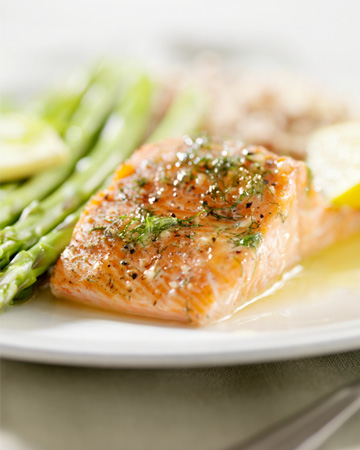The most common items eaten for American Christmas Dinner are:
Turkey + Stuffing
Cranberry Sauce
Green Beans (Most popular style is green bean casserole)
Mashed Potatoes (Sweet Potatoes or both were a close second!)
Gravy made from the turkey drippings/giblets
CORN! This is what sets US Christmas dinners from all others around the world
A variety of pies and rolls

Holiday meals, with turkey or ham and all the fixings, can turn the dining room table into a high-fat smorgasbord. As tasty as they are, these feasts are enough to make your arteries groan.
The typical holiday meal is laden with fat: gravies made with meat drippings, mounds of creamy mashed potatoes, your favorite pies. American adults usually gain one to two pounds each year, including slightly less than one pound during the holidays alone.
How bad is pigging out at holiday meals? Over time, that gradual weight can raise your risk of serious health problems, such as diabetes, arthritis and cardiovascular disease. Studies also show that fats -- especially those found in vegetable shortening, margarine and some oils -- can clog the arteries and contribute to heart disease.
Transforming high-calorie holiday fare
A traditional holiday dinner of turkey, stuffing, other dishes and desserts can exceed 2,500 calories and 130 grams of fat. That's just for one meal. This is more calories than you should consume in a whole day.
But, there are ways to de-fat holiday meals and keep your arteries and your taste buds happy. Here are some tips:
De-fat your gravy
Two tablespoons of regular gravy contain about 4 grams of fat and most people pour on more than that. Try pouring meat drippings into a container ahead of time and then refrigerating. The fat rises to the surface so you can peel it off.
Un-stuff the stuffing
One benefit of this is that the stuffing does not absorb all the fat from the bird. Also, the inside of the bird gets cooked more thoroughly, killing any salmonella that may be present. Also, try adding nuts and fruits instead of sausage or turkey giblets in your stuffing.
Nix the butter
Try adding a little brown sugar, cinnamon and nutmeg to your sweet potatoes instead of butter. Bake them in a nonstick baking pan.
Remove the skin
A 3 1/2-ounce serving of roast turkey breast with skin has 197 calories and 8.3 grams of fat. Without skin, it has 157 calories and 3.2 grams of fat.
Make a single-crusted pie instead of a double-crusted one
Most of the fat in pies is found in the crust. Roll the crust a little thinner if you use a store-bought crust. Fruit pies are lower in fat than a pecan pie.
Bring out the fruits and vegetables
Focus on pumpkin, carrots, sweet potatoes or other orange vitamin-packed vegetables. Greens such as broccoli, spinach and collard greens all pack vitamin power too. Serve colorful raw veggies with low-fat dip as an appetizer.
Make smart substitutions
Use fat-free, low-sodium chicken or vegetable broth to moisten dressing. Use olive oil in place of butter or margarine. Mash potatoes with nonfat sour cream and low-fat milk. Use fat-free non-dairy creamers or evaporated skim milk instead of cream when you bake.
Don't starve yourself until dinner
Have a healthy breakfast so you don't load up at the big meal. When you sit down to eat, try just a little bit of everything and go easy on second helpings and dessert.
The benefits of exercise
Take a walk after dinner, or exercise sometime during the day to offset meal calories. Several studies have shown that moderate exercise after a fatty meal helps prevent fat from affecting your arteries.
Take a 45-minute walk two hours after a high-fat meal, or three 10-minute walks over a three-hour period. But always check with your doctor before you increase your activity level, especially if you have medical problems or have been inactive.
So, enjoy your meal, but prepare it with less fat and walk it off afterwards. Your arteries and your waistline will thank you.
Original Posted myOptumHealth.com - Cross Posted: ValleyNewLive
SOURCES:
- Nestel PJ, Shige H, Pomeroy S, Cehun M, Chin-Dusting J. Post-prandial remnant lipids impair arterial compliance. Journal of the American College of Cardiology. 2001;37:1929-1935. Accessed: 11/19/2008
- Padilla J, Harris RA Fly AD, Rink LD, Wallace JP. The effect of acute exercise on endothelial function following a high-fat meal. European Journal of Applied Physiology. 2006;98(3):256-262. Accessed: 11/19/2008
Merry Christmas to you All !!


 U.S. researchers report they have isolated a strain of food-borne bacteria from the heart of a patient with endocarditis.
U.S. researchers report they have isolated a strain of food-borne bacteria from the heart of a patient with endocarditis.